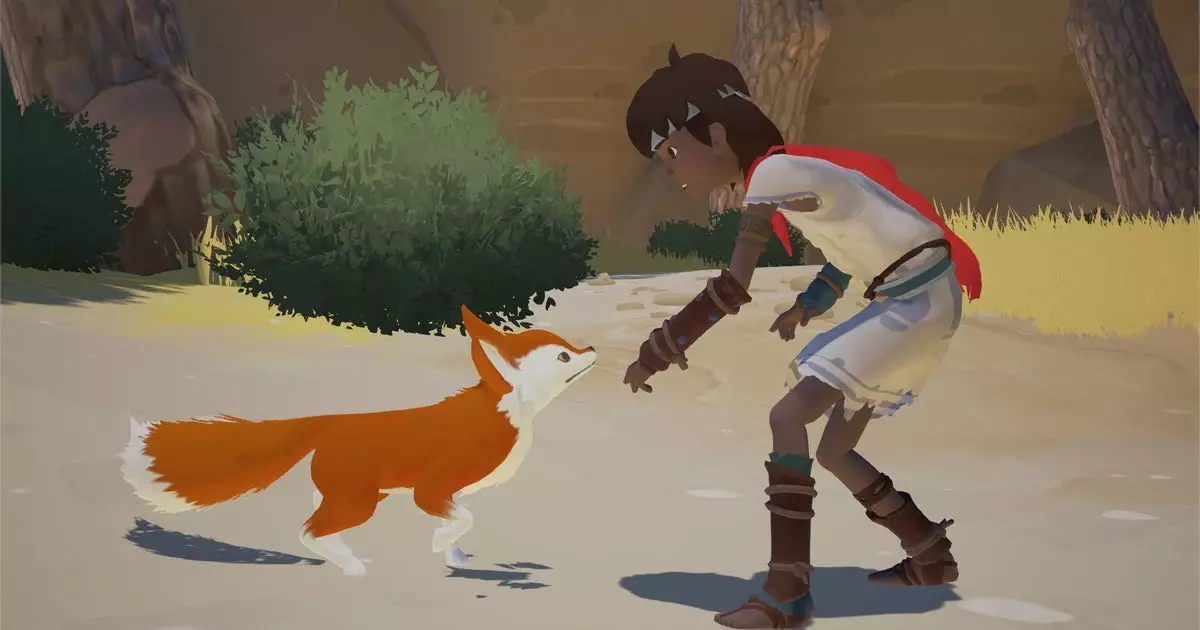In the dynamic landscape of video game development, few stories reflect the fragility of success quite like that of Tequila Works. Once celebrated for their breathtaking journey through emotion and artistry in games like *Rime*, they recently found themselves navigating a storm of unfortunate events that culminated in substantial layoffs and insolvency. The studio’s tumult became public when financial backing from Tencent fell through, forcing the founders, Raúl Rubio and Luz Sancho, to exit the company they nurtured. This creates an eerie portrait of an industry where promising ideas can evaporate due to financial misalignments and unavoidable market pressures.
As of late, the remnants of Tequila Works have turned to an auction in a bid to salvage what they can. This drastic measure underscores the precarious nature of the gaming industry, where even the most inventive studios can falter under prolonged economic challenges. It raises the question: what does it say about our expectations of resilience and success in creative industries? With an auction listing home to their published works and various projects in various stages of development, one can’t help but wonder how many games that might have enriched the player experience are lost to this unfortunate turn of events.
A Glimpse into What Could Have Been
Among the treasures up for grabs at the auction is *The Ancient Mariner*, an endeavor promising an expansive narrative-driven experience tied to human emotions, reminiscent of *Rime*. Although its elevator pitch may come across as clunky, the inspiration drawn from Coleridge’s classic suggests an ambitious project that had the potential for profound storytelling. The exploration of human emotions as gameplay mechanics is not only commendable but also highlights a trend where video games can serve as a vehicle for introspection and emotional engagement. Yet, losing this project signifies a missed opportunity for those who appreciate the art of emotional gaming.
Next on the chopping block is *Dungeon Tour*, a starkly contrasting concept that sounds like a delightful romp through whimsical settings. With its blend of humor and cooperative gameplay reminiscent of *Overcooked* but set in a fantasy realm, it presents an intriguing mashup that could attract a wide demographic, from casual gamers to seasoned players looking for lighthearted fun. In an age where multiplayer experiences thrive, this venture could have introduced a refreshing angle to the cooperative gaming scene. The comedic premise of guiding hapless tourists through procedurally generated dungeons sparks a sense of creativity and playfulness that many developers might overlook in pursuit of more conventional designs.
Yet, the auction reveals further turmoil with *Brawler Crawler*, a promising combat-focused game that ultimately succumbed to cancellation. This title aimed to create chaos in urban settings teeming with procedural generation—an idea ripe with potential for innovative combat mechanics. It poses the question of what led to its demise and reminds us that not every captivating concept makes it to market, often due to underlying financial constraints, rushing deadlines, or perhaps management decisions that falter under pressure.
The Human Cost of Closure
As we unpack this narrative of loss and opportunity, the impact on the workforce cannot be overlooked. Reports indicated that remaining staff were expected to fulfill their roles amidst imminent uncertainty, exemplifying an all-too-common plight in the gaming industry. The dynamics of creative labor are challenging, and amid a company’s downfall, emotional and professional support is frequently neglected. Many former employees now seek new opportunities, sharing their unique tributes to a studio that once felt like a second home.
Rob Yescombe, a freelance narrative director who collaborated on *Rime*, expressed gratitude for the experience even amidst sorrow. Such reflections speak volumes about the community spirit within the studio, highlighting a sense of belonging that transcended mere employment. These stories of kinship among team members underscore that while Tequila Works may be auctioning off its creative assets, the relationships and experiences cultivated within its walls are irreplaceable.
In the wake of Tequila Works’ struggles, the narrative is not solely about the games that may never see the light of day but also about the passion, creativity, and human connection that fuel the gaming industry. The departure of talented individuals from this chapter signifies a larger loss to the creative sectors and ignites a conversation on how to nourish and support those who shape our shared virtual experiences.


Leave a Reply